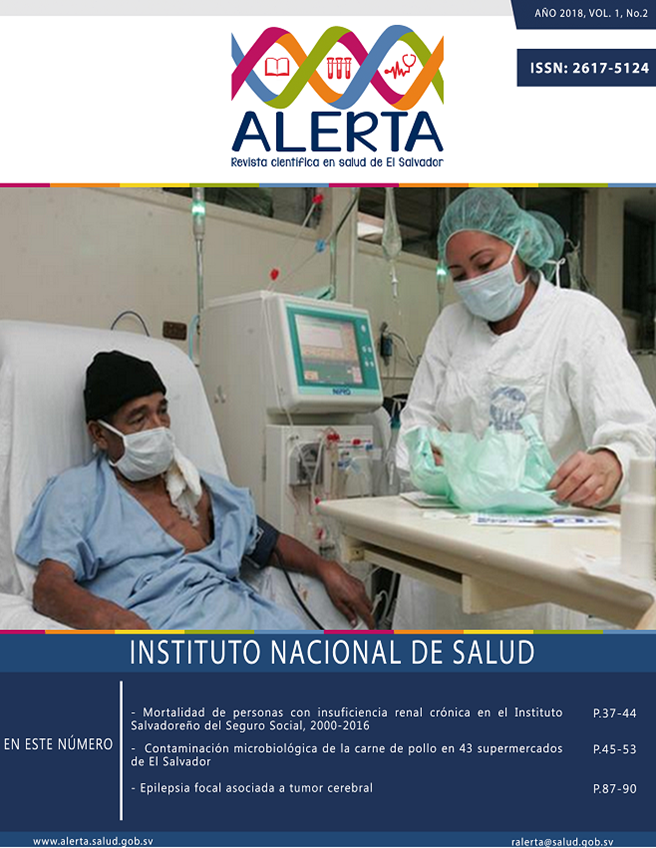Identification of bacteria resistant to carbapenemic antibiotics in hospitals El Salvador
DOI:
https://doi.org/10.5377/alerta.v1i2.7135Keywords:
Entero bacterias, resistencia bacteriana, carbapenemasas, Acinetobacter baumanni, Klebsiella pneumoniaeAbstract
Objective. Identify the types of bacteria that have mechanisms of resistance to carbapenemic antibiotics. Methodology. The information of the years 2014-2016 on mechanisms of resistance to carbapenems, obtained from the identification protocols applied in the National Reference Laboratory, was collected in an electronic database designed for this purpose. Tickets from the network of establishments for confirmation. Frequency tables were made in the Epi Info version 7 program, each of the samples was georeferenced for processing and presentation in the Quantum GIS 2.18 program.
Results. In 26 hospitals in El Salvador, bacteria that produce carbapenemase have been found, regardless of their complexity or level of care. The Metropolitan Health Region concentrates 45% (438) of the carbapenemase-producing bacteria. The agent identified most frequently was Acinetobacter baumannii with 85% (807), followed by Klebsiella pneumoniae with 10% (97). Secretions accounted for 77% (731) of the isolation sites, followed by sterile body fluids with 19% (184). The mechanism found most frequently was carbapenemase oxacillinase type in 63% (247), followed by metallo-beta-lactamases in 36% (140). Conclusions. In the country, the carbapenemase producing bacteria are present predominantly in the hospitals of the Metropolitan Region. The bacterial species identified were A. baumannii and K. pneumoniae, which have remained constant during the study period and represent a risk for health care.
Alerta Year 2018, Vol. 1 No. 2: 8-15
Key words: enterobacteria, bacterial resistance, carbapenemases, Acinetobacter baumannii, Klebsiella pneumoniae
Downloads
1880
Downloads
Published
How to Cite
Issue
Section
License
Copyright (c) 2018 Esmeralda Villatoro, Roberto Cardoza, Zandra de Fuentes, Carlos E. Hernández

This work is licensed under a Creative Commons Attribution 4.0 International License.
Privacy statement:
Alerta articles are published under license Creative Commons 4.0 CC BY: https://creativecommons.org/licenses/by/4.0/
Authorship rights
Revista Alerta gives the authors exclusive control of their work and the right to be acknowledged and cited.





